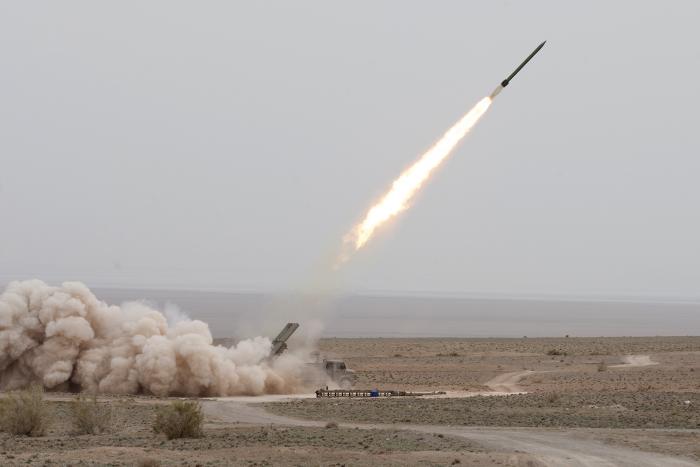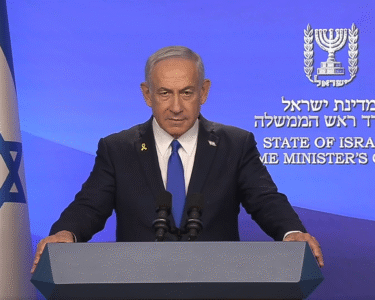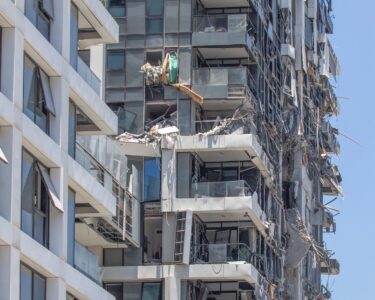Israeli defense systems successfully intercepted a ballistic missile fired from Yemen early Thursday morning, marking the latest escalation in a sustained campaign of attacks by the Iran-backed Houthi organization against Israeli territory. The incident, which triggered widespread alert sirens across the country at 05:21, underscores the growing security challenges posed by the Yemeni militant group’s expanding military capabilities.
An Israeli Defense Forces spokesperson confirmed at 05:26 that the Air Force had intercepted one missile launched from Yemen, continuing a troubling pattern of consecutive attacks that have seen Houthi forces fire missiles at Israel for five consecutive days during recent weeks. The successful interception demonstrates Israel’s defensive capabilities while highlighting the persistent nature of the threat emanating from approximately 1,600 kilometers away.
The Houthis, a Shia-Zaydi Islamic political military organization that has controlled extensive parts of Yemen since 2014, command between 350,000 and 500,000 fighters from the Zaydi branch of Islam. The group’s military capabilities have been significantly enhanced through Iranian support, with Tehran supplying advanced weapons systems including Tufan and Fateh-1 ballistic missiles, cruise missiles, and unmanned aerial vehicles. Iranian training programs conducted both within Iran and at Iranian naval academies have further strengthened the organization’s operational capacity.
The Houthi threat to Israel has intensified dramatically since the outbreak of the Iron Swords war. The organization first targeted Israeli territory on October 19, 2023, launching ballistic missiles and UAVs that were intercepted by the American destroyer Carney and Saudi Arabian forces. Since that initial attack, the Houthis have maintained consistent terrorist activity against Israel, with several missiles successfully penetrating Israeli defenses and striking civilian targets.
The consequences of these attacks have been severe, with Houthi ballistic missiles hitting an elementary school in Ramat Afal in Ramat Gan in December 2024, striking a playground in Jaffa, and causing additional damage throughout the country. The missiles employed in these attacks represent a significant technological advancement, featuring maneuvering warheads that zigzag during flight rather than following predictable trajectories, making interception considerably more challenging for Israeli defense systems.
The mobility and agility of Houthi launch systems present unique operational challenges. The organization employs large launchers mounted on heavy-duty trucks, concealed in natural caves throughout northern Yemen. This mobile infrastructure allows the Houthis to transport a launcher to a firing position and prepare for launch in less than thirty minutes, a capability that differs markedly from the missile systems previously used by Hamas and Hezbollah, which Israeli forces successfully neutralized.
Iran has strategically dispersed missile stockpiles across northern Yemen among different tribal territories, preventing any single tribe from seizing large quantities of weapons simultaneously. The ballistic missiles are operated by small, specialized units that have undergone extensive training in Iran, reflecting the sophistication of the Houthi military apparatus. The organization’s ideological commitment is encapsulated in their official slogan: “God is great, death to America, death to Israel, curse the Jews, victory to Islam”, which reflects extreme anti-Western, antisemitic, and anti-Israeli ideology.
Israel’s military response to the Houthi threat has included four separate attacks on Yemen over the past year. These operations have involved the deployment of advanced fighter aircraft dropping precision-guided munitions on power stations, port facilities, weapons warehouses, and various infrastructure targets. However, these strikes have failed to deter continued Houthi attacks, demonstrating the limitations of conventional military responses against the organization’s distributed and mobile capabilities.
The Houthis present threats beyond direct military attacks, posing significant risks to the Israeli economy through their possession of Iranian-made shore-to-ship missiles capable of causing substantial damage to commercial vessels. The organization has threatened to target Israeli ships transiting the Red Sea, potentially affecting international trade routes and increasing insurance costs for maritime commerce.
Regional defense arrangements have been established along the axis between Yemen and Israel, with US Navy warships patrolling the Red Sea equipped with advanced radar systems capable of detecting small and sophisticated targets, including ballistic missiles. According to media reports, Israeli forces first deployed the “Barak” system on June 20, 2025, successfully intercepting an unmanned aircraft that had penetrated Israeli airspace from Iranian territory.
The Houthi organization faces significant internal challenges, with a substantial divide between the predominantly Sunni Yemeni population and the Shia Houthi leadership. The group lacks governmental legitimacy, having seized power through military force rather than democratic processes. Israeli strikes on the coastal city of Al-Hodeidah in July targeted oil storage facilities and power infrastructure, creating long-term environmental and health consequences for the Yemeni civilian population.
Thursday morning’s missile launch and its successful interception illustrate the new security reality confronting Israel. The country now faces ongoing confrontation with a long-range threat from a distant nation, with Houthi missiles and UAVs capable of reaching Israeli targets within twelve minutes of launch. This rapid transit time severely limits response options and places enormous pressure on Israeli defense systems.
The challenge facing Israeli security planners is multifaceted: confronting a terrorist organization that receives funding and advanced weaponry from Iran, possesses sophisticated technological capabilities, operates from great distances, and employs mobile launch systems that are difficult to detect and neutralize. The morning’s successful interception, while demonstrating Israeli defensive capabilities, also confirms that despite ongoing military and diplomatic efforts, the Houthi threat to Israel continues to evolve and intensify.
This latest incident reinforces the complex security environment in which Israel operates, where threats emerge from multiple directions and require sustained defensive vigilance. The successful interception provides temporary relief while underscoring the persistent nature of the challenges posed by Iran’s regional proxy network and the evolving capabilities of non-state actors in the region.





